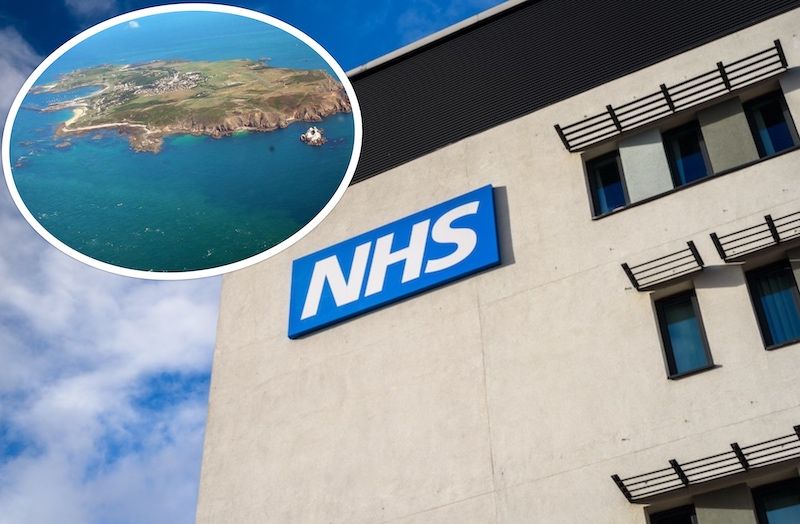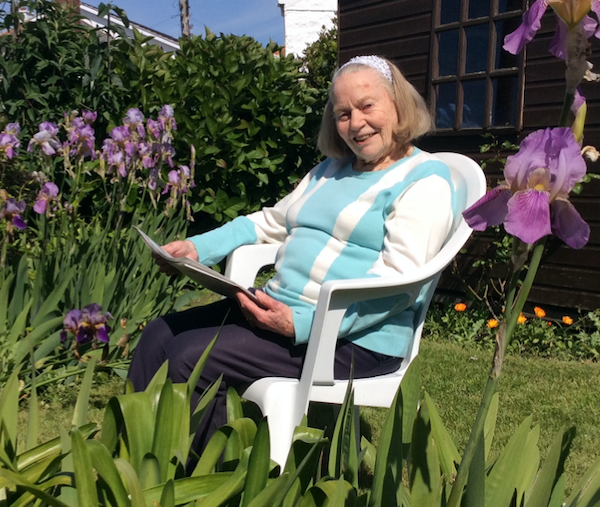


Over the past couple of months, thousands of people across the UK have been taking to their doorsteps to applaud the NHS workers, and although it doesn't cover the Channel Islands, the founding of the UK's national health service might have some links with Alderney, as Peter Annereau explains...
"The NHS has been central to everyone’s life in the UK from the moment of birth, through injury and illnesses of child and adulthood, to the problems of advancing years.
Free to all at the point of need has been the guiding principle of the NHS, but where did that that come from, and how did the service come about?
The service came into being on 5 July 1948, but the gestation period had been long and much of the credit for its establishment is owed to socially-minded doctors who first came together in 1930.
A pioneer of the movement was one Dr Charles Brook, father of [Alderney's] own Rosemary James - now 92 - who told me of the extraordinary life and works of both her parents.

Pictured: Alderney's Rosemary James shared her parents' story.
Charles Brook had been a rebel from early days. Born in 1901 into a comfortably established middle-class family of Tory views - his father being a doctor - he shocked his parents when, upon going up to Cambridge to study medicine, he became secretary of the university’s Socialist Society. It was the start of a long involvement at the heart of Socialism in England, though in later years his politics changed, eventually seeing him vote for Margaret Thatcher.
As a medical student at St. Bartholomew’s Hospital in London, he met and married Iris Benyon - a nurse - who was also no mean fighter for human rights. Together they became a formidable team; Iris becoming a powerful influence in the Guild of Nurses and The Confederation of Health Service Employees.
It was a correspondence with a German dentist, Dr. Ewald Fabian, that led to the first significant steps taken by Charles to develop his ideas for universal access to medical care. In the '20s, socialist doctors in Germany and Austria organised themselves into groups several hundreds strong and were influencing public opinion through publications and political contacts.
Charles, who was by then a General Practitioner and also a London County Councillor, was at first reluctant to form a similar group in England. When the dentist visited him in London, discussion was difficult as neither could speak the other’s language. The visitor seemed to find the set-up of British voluntary hospitals completely incomprehensible.
In an article written by Charles Brook in 1946, he wrote, 'despite Fabian’s persistence, the prospects of being able to get a socialist medical organisation started here seemed very remote indeed, for I not only had my hands full with my professional duties and various political activities, but I was also secretary of the Tooting Housing Survey Council, which I had convened the previous year, in order to focus public attention on a comparatively new slum area in Tooting and to create a local agitation for the removal of a large dust destructor from the centre of that district'.

Pictured: Dr Charles Brook became a GP.
With the help of a newspaper reporter, he succeeded in getting the destructor removed and houses improved.
Moved by disparaging comparisons between State and Voluntary hospitals made by the MP for London University, Sir Ernest Graham-Little, Charles wrote to the Daily Herald inviting like-minded medical practitioners to contact him. It was not long before a first meeting was held and a constitution, designed to win affiliation to the Labour Party, was drawn up for what would be the Socialist Medical Association, with Somerville Hastings as President and Charles as Secretary.
Its top priorities were 'to work for a Socialised Medical Service both preventative and curative, free and open to all' and 'to secure for the people the highest possible standard of health'.
Two years later, in 1932, Somerville Hastings moved a successful resolution at the Labour Party conference for the establishment of a States Medical Service and the SMA played a major part in drafting party policy which was approved unanimously two years later.
By then, Dr. Edith Summerskill - a leading Labour MP and minister - had come onboard and advanced the policy through her close colleagues, including Clement Attlee and Herbert Morrison.
Affiliation of the SMA to the TUC was achieved and Charles became the first medical delegate to address the congress when he highlighted the hazards to health caused by industrial practices, whereupon the leader of the train driver’s union declared; 'this is a red letter day in the history of the TUC'.
Pictured: Many people in Guernsey have also been clapping for the local health service.
Despite battling to further the cause of a universal health care system while also working as a GP and serving as a Councillor, Charles also made time to launch an appeal to bring support to Spanish republicans fighting Franco’s forces. What started as a plan just to send medical supplies grew to the provision - in just three weeks - of a fully-equipped and staffed medical unit sent in a convoy of vehicles to the battle front.
Charles gave up being Secretary of the Socialist Medical Association in 1938 because of the demands of his work as the doctor serving a huge new housing estate at Mottingham, near Eltham. He continued to write articles, one of which led to questions in the House of Commons and, he hoped, a 'better distribution of hospitals in Greater London as part of the coming National Health Service'.
Looking to this coming to reality after the war, in 1940 he gave an address on 'post-war problems of the GP' in which he called for their remuneration by basic salary and a capitation system. This did get incorporated into the scheme following Labour’s landslide General Election victory in 1945 and the passing of the National Health Service Act the following year.
It had been the result of much agitation and he reflected; 'I am proud to know that the source of this agitation was in no small measure due to the Socialist Medical Association, in whose creation I had taken some share and which has done much to change the perspective and methods of one of the most conservative professions in the world'."
Pictured top: Alderney with the NHS.